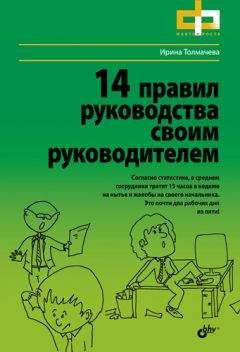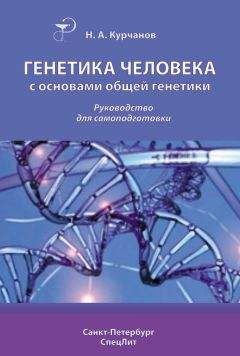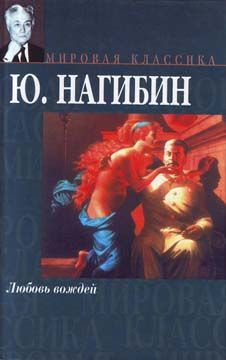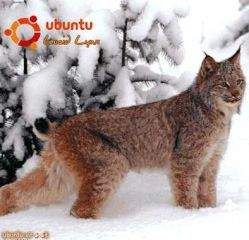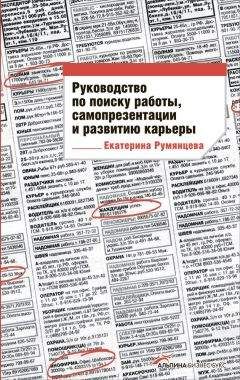Ольга Ламонова - Английский язык. Ирландские волшебные сказки / Irish Fairy Tales
There was an old fisherman once in Erin who had a wife and one son.
The old fisherman used to go about with a fishing-rod and tackle to the rivers and lochs and every place where fish resort, and he was killing salmon and other fish to keep the life in himself and his wife and son.
The son was not so keen nor so wise as another (/его/ сын не был ни таким проницательным, ни таким мудрым, как другие; keen – острый; проницательный), and the father was instructing him every day in fishing (и отец каждый день обучал его рыболовству), so that if himself should be taken from the world (чтобы, если он сам умрет: «так что если он сам будет взят из /этого/ мира»), the son would be able to support the old mother (/его/ сын смог бы поддержать /свою/ старую мать; to support – поддерживать, подпирать; помогать, поддерживать /материально/, содержать /семью и т. п./) and get his own living (и самостоятельно зарабатывать на жизнь: «и зарабатывать свои собственные средства к существованию»).
The son was not so keen nor so wise as another, and the father was instructing him every day in fishing, so that if himself should be taken from the world, the son would be able to support the old mother and get his own living.
One day when the father and son were fishing in a river near the sea (однажды, когда отец и сын ловили рыбу в одной реке недалеко от моря), they looked out over the water (они взглянули на море: «поглядели на /море/ над водой») and saw a small dark speck on the waves (и увидели небольшое темное пятнышко на волнах). It grew larger and larger (оно все увеличивалось и увеличивалось: «росло все больше и больше»; to grow /grew, grown/), till they saw a boat (пока они не увидели лодку), and when the boat drew near (а когда лодка приблизилась; to draw /drew, drawn/ – тащить, волочить; пододвигаться, приближаться) they saw a man sitting in the stern of it (они увидели сидящего на корме мужчину).
One day when the father and son were fishing in a river near the sea, they looked out over the water and saw a small dark speck on the waves. It grew larger and larger, till they saw a boat, and when the boat drew near they saw a man sitting in the stern of it.
There was a nice beach near the place (рядом с тем местом был хороший берег) where they were fishing (где они рыбачили). The man brought the boat straight to the beach (этот мужчина подвел лодку прямо к этому берегу; to bring /brought/ – приносить; приводить /с собой/), and stepping out drew it up on the sand (и, выйдя из лодки, вытащил ее на песок; step – шаг; to step – шагать, ступать, делать шаг; to draw /drew, drawn/).
They saw then that the stranger was a man of high degree [duine uasal] (они увидели, что незнакомец был мужчиной знатным: «высокого социального положения»; high – высокий; высокий /по званию, положению, состоянию/, высокопоставленный; degree – градус; положение; of high degree – высокопоставленный).
There was a nice beach near the place where they were fishing. The man brought the boat straight to the beach, and stepping out drew it up on the sand.
They saw then that the stranger was a man of high degree [duine uasal].
After he had put the boat high on the sand (после того как он вытащил лодку высоко на /прибрежный/ песок), he came to where the two were at work (он подошел к тому месту, где трудились двое /мужчин/: «эти двое были за работой»), and said (и сказал),
“Old fisherman (старый рыбак), you’d better let this son of yours with me for a year and a day (тебе бы лучше отпустить своего сына со мной на год и один день = на целый год), and I will make a very wise man of him (и я сделаю из него очень мудрого человека). I am the Gruagach na g-cleasan (Gruagach of tricks) (я Хитрый Груагах; gruagach – лохматый, волосатый; trick – хитрость, обман/), and I’ll bind myself to be here with your son this day year (и я обязуюсь быть здесь с твоим сыном в этот же день через год; to bind – вязать, связывать; обязаться, взять на себя обязательство).
After he had put the boat high on the sand, he came to where the two were at work, and said,
“Old fisherman, you’d better let this son of yours with me for a year and a day, and I will make a very wise man of him. I am the Gruagach na g-cleasan (Gruagach of tricks), and I’ll bind myself to be here with your son this day year.
“I can’t let him go (я не могу позволить ему пойти /с тобой/),” said the old fisherman (сказал старый рыбак), till he gets his mother’s advice (до тех пор, пока он не получит совет/наставление от своей матери).”
“Whatever goes as far as women (если дело касается женщин: «что бы ни шло так далеко как женщины») I’ll have nothing to do with (то я не буду с этим связываться; to have to do with smb., smth. – иметь отношение к кому-л., чему-л.),” said the Gruagach. “You had better give him to me now (тебе бы лучше отдать его мне /прямо/ сейчас), and let the mother alone (и оставить /его/ мать в покое; alone – в одиночестве, наедине; to let alone – оставить в покое).”
“I can’t let him go,” said the old fisherman, till he gets his mother’s advice.”
“Whatever goes as far as women I’ll have nothing to do with,” said the Gruagach. “You had better give him to me now, and let the mother alone.”
They talked till at last the fisherman promised (они разговаривали до тех пор, пока, наконец, рыбак не пообещал) to let his son go for the year and a day (отпустить своего сына на целый год: «позволить своему сыну пойти на год и один день»). Then the Gruagach gave his word (тогда Груагах пообещал: «дал свое слово»; to give /gave, given/; word – слово; обещание, слово) to have the boy there at the seashore that day year (привести юношу туда, на морской берег, в тот же день через год).
The Gruagach and the boy went into the boat and sailed away (Груагах и юноша сели: «пошли» в лодку и уплыли).
They talked till at last the fisherman promised to let his son go for the year and a day. Then the Gruagach gave his word to have the boy there at the seashore that day year.
The Gruagach and the boy went into the boat and sailed away.
When the year and a day were over (когда год и один день истекли = когда прошел ровно год; over – через; to be over – закончиться), the old fisherman went to the same place (старый рыбак пошел на то же самое место) where he had parted with his son and the Gruagach (где он расстался со своим сыном и Груагахом; to part – разделять, отделять; разлучаться, расставаться), and stood looking over the sea (и стоял, вглядываясь в море: «над морем»), thinking would he see his son that day (и размышлял о том, увидит ли он своего сына сегодня: «в тот день»).
When the year and a day were over, the old fisherman went to the same place where he had parted with his son and the Gruagach, and stood looking over the sea, thinking would he see his son that day.
At last he saw a black spot on the water (наконец он увидел черное пятно на /поверхности/ воды), then a boat (затем и лодку). When it was near (когда она подошла поближе: «она была близко») he saw two men sitting in the stern of the boat (он увидел двух мужчин, которые сидели на корме той лодки). When it touched land (когда она коснулась берега: «земли»), the two, who were duine uasal in appearance, jumped out (двое аристократичного вида /мужчин/: «двое, которые были высокопоставленными /судя/ по внешнему виду», выпрыгнули из /лодки/; appearance – появление; внешний вид, наружность; to appear – появляться), and one of them pulled the boat to the top of the strand (и один из них вытащил лодку на самый верх прибрежной полосы). Then that one, followed by the other (затем тот мужчина, который шел первым: «тот, за которым следовал другой»), came to where the old fisherman was waiting (подошел к тому месту, где ждал старый рыбак), and asked (и спросил), “What trouble is on you now, my good man (ну же, что тебя сейчас тревожит, любезный: «какие неприятности на тебе теперь, мой добрый человек»; trouble – беспокойство, волнение; неприятность, беда, горе; good – хороший; добрый, милый, любезный)?”
At last he saw a black spot on the water, then a boat. When it was near he saw two men sitting in the stern of the boat. When it touched land, the two, who were duine uasal in appearance, jumped out, and one of them pulled the boat to the top of the strand. Then that one, followed by the other, came to where the old fisherman was waiting, and asked, “What trouble is on you now, my good man?”
“I had a son (у меня был сын) that wasn’t so keen nor so wise as another (который не был ни столь проницательным, ни столь мудрым, как другие), and myself and this son were here fishing (а я сам и этот /мой/ сын были здесь, рыбачили), and a stranger came (и пришел один незнакомец), like yourself today (как вы сами /пришли/ сегодня), and asked would I let my son with him for a year and a day (и спросил, не отпущу ли я своего сына с ним ровно на год). I let the son go (я отпустил своего сына: «я позволил сыну пойти»), and the man promised to be here with him today (и тот человек пообещал быть здесь вместе с ним сегодня), and that’s why I am waiting at this place now (вот почему я и жду на этом месте сейчас).”
“I had a son that wasn’t so keen nor so wise as another, and myself and this son were here fishing, and a stranger came, like yourself today, and asked would I let my son with him for a year and a day. I let the son go, and the man promised to be here with him today, and that’s why I am waiting at this place now.”
“Well (ну),” said the Gruagach, “am I your son (я /ли/ твой сын)?”
“You are not (нет),” said the fisherman.
“Is this man here your son (а этот человек здесь, /он/ твой сын)?”
“I don’t know him (я его не знаю),” said the fisherman.
“Well, then, he is all you will have in place of your son (что ж, тогда он – это все, что ты получишь взамен своего сына: «будешь иметь вместо своего сына»),” said the Gruagach.
